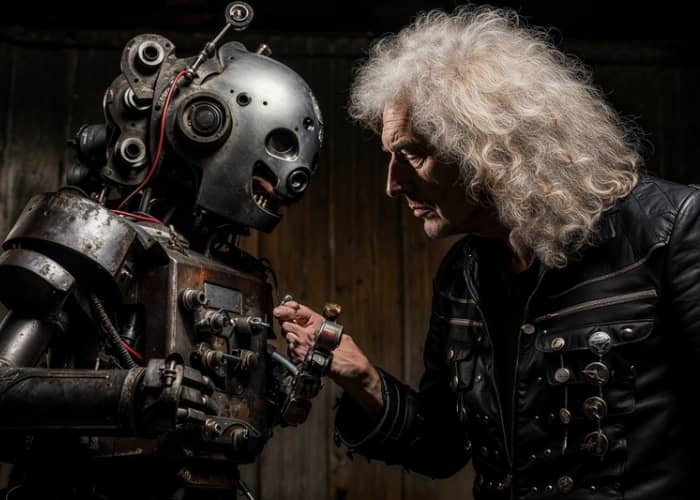When a rock icon meets the frontier of artificial intelligence, the result is an explosion of ideas that challenge the way we perceive music. With his "double life" as a scientist and rock legend (who wouldn't love this combination?) Brian May he is fully entitled to show his vision of the future. The guitarist of the legendary Queen sees a future in which music is no longer just a human expression, but also a playground for artificial intelligence.
Recently guest on a very popular podcast in the UK (I'll put it at the end of the paragraph), Brian May literally guided listeners on a journey between melodies, algorithms and ethical questions, which saw science merge with art in unexpected harmonies .
The rise of AI in music: does this sound good or bad to you?
The music industry is experiencing a quiet but incredibly powerful revolution thanks to the advance of artificial intelligence. The most emblematic example of this trend is the song “Heart on My Sleeve”: do you know her? A TikTok user called Ghostwriter created it by using AI to replicate the vocal styles of artists Drake and The Weeknd. A true trailblazer, in every sense: the song raised fundamental questions about originality, authenticity and intellectual property in an era dominated by AI.
This is why Brian May underlined that, apart from the obvious frontiers of creativity, AI also moves the unique and controversial ones of ethics.
We need to reflect on the very nature of creativity, says “Sir May”. Each artist draws, more or less consciously, from a dense and sometimes mysterious network of influences and inspirations. AI, according to Brian May, could amplify this process, offering new possibilities: even redefining the very role of the artist. However, AI can all too easily imitate and recombine existing elements in new ways. Innovation? Inspiration? Plagiarism? What are we talking about in the end?

AI Music: Brian May between possibilities and worries
Looking to the future, May sees a time when AI will not only compose music, but perform and appreciate it on its own, an idea that might seem dystopian, but reflects the rapid evolution taking place in the field of artificial intelligence. This could lead to a turning point where the human presence in music becomes secondary, a concept that challenges our current notions of art and creativity.
As the music industry continues to grapple with the implications of AI, artists such as electronic duo Disclosure and the legendary band the Beatles have already explored these new technologies. Even the Recording Academy, recognizing this trend, updated its rules for the 2024 Grammy Awards to include music created with the help of AI, while placing limits on the use of songs entirely generated by electronic intelligence.
And then, suddenly Nick Cave

If the double soul of musician and scientist torments and fascinates Brian May's vision of the future, there is someone who has already developed much clearer ideas. He's the rocker Nick Cave, who expressed a strong rejection of the use of AI in artistic creation.
In his blog, the artist criticized the use of tools like ChatGPT for writing lyrics, seeing them as a threat to the collective soul and spirit of humanity. According to Cave, creative struggle is essential to giving depth and meaning to our lives.
However you think, in the near future, (perhaps much sooner than we think) music may no longer be an exclusive field of expression for human beings, marking an era of unprecedented challenges in the artistic world. “The show must go on”, Brian. Or not?


